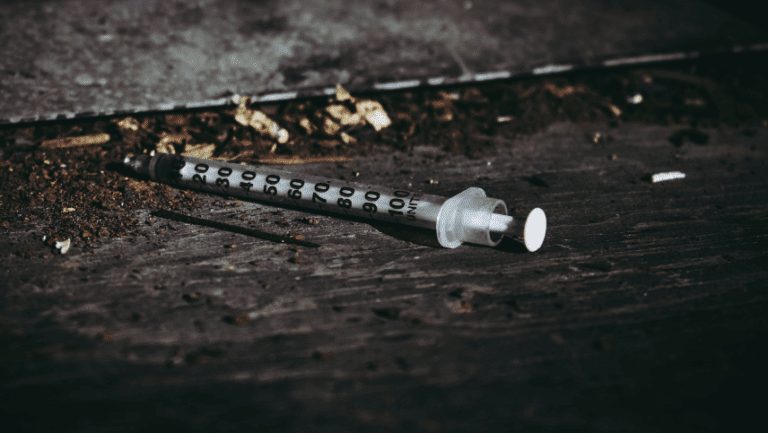Meth is a highly addictive drug that can cause severe health problems. Tennessee has the second-highest rate of meth usage in the nation, with nearly 2 million people estimated to have used meth in the past year. Meth is also a major contributor to crime, as it makes users more likely to commit crimes like robbery and property damage.
While addiction treatment programs are in place for those who need help, the impact on society is devastating. Here’s a closer look at how Tennessee’s meth epidemic affects every part of society and what measures could be taken to help reduce this issue.
An Overview of Meth
Meth is a highly addictive, man-made drug that can cause severe health problems. Meth is considered a Schedule II drug, meaning it has a high potential for abuse and addiction. It also has the highest risk of overdose associated with any other type of drug.
The National Institute on Drug Abuse defines meth as “a crystalline powder or rock that is mixed with a liquid and then vaporized to activate the drug.” Once meth enters into the body, it alters the brain’s chemistry and causes changes in physical sensation, moods, and thinking processes. It can also cause psychotic behavior and hallucinations.
In addition to being dangerous to users, meth poses serious potential repercussions for society as well. Meth is a major contributor to crime; it makes users more likely to commit crimes like robbery and property damage. Meth has also been linked to domestic violence incidents in homes where one or both parties are using the drug.
The Current Situation
In Tennessee, meth is sold in a variety of forms. The drug can be smoked, swallowed, or injected and is also sprinkled on foods like cereal or candy to cut the time it takes to cook the drug.
Meth not only affects those who use it; it also endangers children who are exposed to second-hand smoke from the drug while their parents are using it. Meth has also caused a spike in crime across Tennessee, as those under its influence commit property crimes like theft and burglary at a higher rate than those who aren’t addicted.
Health and Wellbeing
The physical, mental, and societal toll of meth addiction can be severe. Meth addiction can cause a number of health problems including heart disease, stroke, brain damage, lung cancer, and kidney failure. Meth addiction also increases the risk of HIV/AIDS and hepatitis C infections by up to 80 percent.
Another issue is that meth addiction leads to financial instability. Meth users are more likely than other drug users to experience financial difficulties such as eviction or loss of job or income.
Meth contributes heavily to crime: meth addicts are more likely than other drug addicts to commit property crimes like robbery and home invasion as well as violent crimes like murder and rape. Meth also makes people more likely to engage in risky behavior such as driving under the influence or trading sex for money.
Recovery and Recidivism
According to a Tennessee Department of Mental Health and Substance Abuse Services (TDMHSAS) report, in 2014 there were over 11,000 meth users who were in drug treatment programs. However, it takes more than just addiction treatment to help those struggling with meth addiction. Meth can cause psychological dependence on the user, making it hard for them to stop using even if they know how dangerous meth is. Additionally, relapse rates are extremely high within 6 months of leaving rehab because the body has not yet fully recovered from the effects of meth.
In order to reduce recidivism rates, rehabilitation centers need to provide recovery plans for meth recovering patients which include individualized therapies that target what’s causing the relapse. Some suggestions include providing people with opportunities for social and physical activities which can be an important part of their recovery process and helping them achieve healthy living goals like exercise or healthier eating habits so they’re not at risk for relapsing again.
Knoxville Recovery Center Can Help
Fortunately, help is available for those battling methamphetamine addiction. Depending on the stage of an individual’s addiction, they may require detox, an intensive treatment program, or both. Fortunately, Knoxville Recovery Center offers various services to those struggling with this addiction.
Services offered:
Detox – Our on-site detox clinic accommodates and supports clients as the body sheds all residual traces of addictive substances. Clients are under medical supervision during the detox process to ensure that they remain safe and comfortable.
Addiction Treatment – During our addiction treatment program, clients will engage in introductory therapies and exercises that work to prepare them for continued, more intensive treatment outside of our facility. The goal of our addiction treatment track is to stabilize clients so that they are treatment-ready.
Mental Health Treatment – Our mental health treatment program introduces behavioral therapies rooted in self-expression and holistic exercise. Art therapy, music therapy, and yoga are just a few forms of therapy we offer at the center. Our goal is to help the client reclaim their voice and expose them to treatment within a professional facility.
Aftercare Planning – Aftercare is designed for individuals who have benefitted from our introductory addiction services and are transitioning into a more intensive addiction treatment program. Once a client is stabilized, they will be encouraged to pursue continued addiction treatment. Our experienced case managers will then work with our clients to place them in a program that addresses their specific wants and needs.
Addiction is difficult to overcome alone. If you feel that you or a loved one is struggling with meth addiction and in need of detox, our specialists are on standby and ready to help. Call Knoxville Recovery Center and speak with an addiction expert today.










